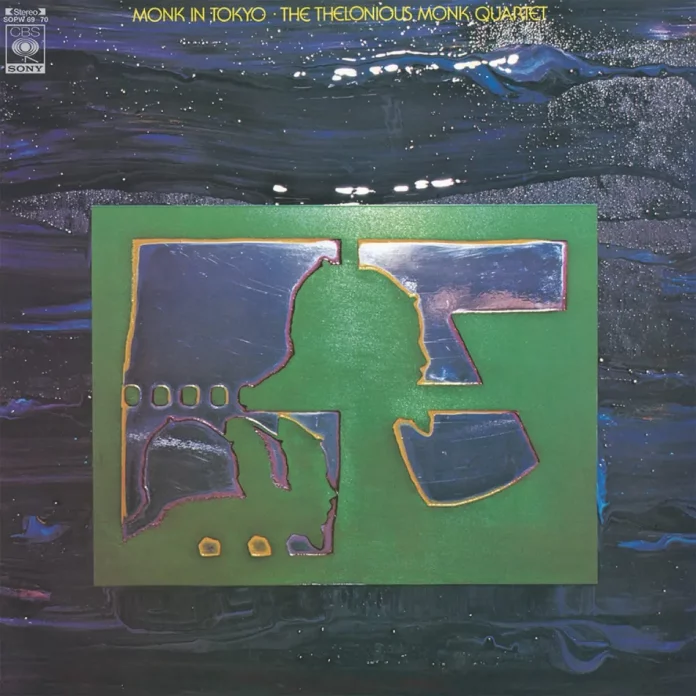This recording was made on the last day of Monk’s extensive tour of Japan in 1963. Four years into an exclusive, well-paid contract with Columbia Records, Monk was comfortable at last. He had a regular quartet, as heard here, although bass and drums changed occasionally. The years of struggle and little money were over, at least for a while. But Monk in comfort, with plenty of money and a big record company behind him, tended to coast somewhat and lose some of his cutting-edge invention and innovation as piano soloist and bandleader.
Kicking off with a nine and a half minute Straight No Chaser, Monk plays a tidy enough solo which is followed by a reasonably good one by tenor man Charlie Rouse. Then we get bass and drum solos. And that is pretty much the pattern throughout this two-LP set. Rouse solos first on Panonica (sic) and appears to be struggling to find anything new on a familiar composition – not surprising really as he must have played it hundreds of times in the five years he had been with Monk. The pianist stretches out and manages to produce some subtle variations on his theme, playing long angular lines and delicate runs up and down the keyboard. Only Monk and Rouse solo on this one which makes it a little different to most of the programme. Monk then takes a 2.26 solo piano workout on Just A Gigolo.
Seven familiar Monk compositions follow and there are competent, if not exactly inspired solos on each by Rouse and Monk and well-structured bass and drum solos by Warren and Dunlop. There is no new Monk material on offer as he tended to do very little composing during the Columbia years. Evidence, sometimes called Justice, flows along neatly with Monk in more inventive form. There are particularly good versions of Blue Monk and Epistrophy, the latter an eight-minute workout (although he also plays a brief one-minute version at the end of one set). Jackie-ing, a lesser-played number, reportedly a Monk favourite, benefits from a lively Monk solo where he swings it effectively. I’m Getting Sentimental Over You is the only other non-Monk chart.
The quartet play well all through this 80-minute double LP recital, although there are no sparks or exceptional solos on offer. The Japanese audience are particularly enthusiastic in their vocal support so the musicians would have considered it a success. It is good music but a far cry from the Blue Note and Riverside years where Monk had stimulating support from the likes of Coltrane, Rollins, Oscar Pettiford, Wilbur Ware, Art Blakey and Max Roach, to name a few. This reissue is manufactured by Speaker’s Corner Records, distributed by Sieveking Sound.
Discography
Straight No Chaser; Panonica (sic); Just A Gigolo; Evidence; Jackie-ing; Bemsha Swing; Epistrophy; I’m Getting Sentimental Over You; Hackensack; Blue Monk; Epistrophy (60.20)
Monk (p); Charlie Rouse (ts); Butch Warren (b); Frankie Dunlop (d). Tokyo, 21 May 1963.
CBS Sony SOPW 69 70
















